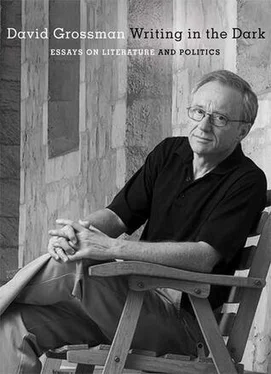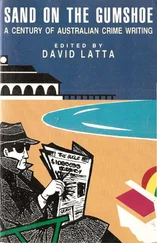Nine months before the intifada broke out, I wrote The Yellow Wind . The book presented nothing new in the way of facts, which had been exposed ad nauseam. But in order to truly understand what I was seeing and feeling, I had to articulate the facts with new words. And from the moment I started writing, from the day I went to the Dheisheh refugee camp and encountered a reality that until that time I had lacked the words to describe, I felt something I had not felt for years, certainly not in the political context: that consciousness, in any situation, is always free to choose to face reality in a different, new way. That writing about reality is the simplest way to not be a victim.
In this sense, writing the nonfiction books made me feel that I was reclaiming parts of myself that the prolonged conflict had expropriated or turned into “closed military zones.” Furthermore, I came to grasp the high price we were paying for willingly giving up on parts of our soul — a price no less painful than giving up land. I knew that we were not killing only the Palestinians, and I asked why we were continuing to accept not just the murder, but the suicide too.
The name of the novel Be My Knife is a paraphrase of a line Franz Kafka wrote to Milena: “Love is to me that you are the knife which I turn within myself.” The Book of Intimate Grammar could not have been written without See Under: Love , which preceded it; Be My Knife could not have been written without The Book of Intimate Grammar ; and Be My Knife , in turn, was probably the basis for the book that followed it. It is clear to me now that this is a very long path, which must be followed slowly, and that I must recognize that an entire lifetime will not suffice to map out even the first bend in the path.
In The Book of Intimate Grammar , I articulated several complicated ideas that I needed to understand, in sentences that today cover the pages in front of me like a verdict. But they are precisely what enabled me to find the strength to step out of Aron Kleinfeld’s loneliness, to escape from the refrigerator at the end of that book and start walking — this time in a different literary situation, with a different, more mature literary character — toward a different person. This would no longer be the imaginary creation of my protagonist, but a man who lives in reality and a woman of flesh and blood. I had to believe that it is possible for a different person to occur within myself, to believe without fear that a person can dwell inside the body and soul and language of another. And to discover that one can find a partner to share the deepest and most silent anxieties, and keys to unlock the most despicable self-laid traps.
Be My Knife is also the story of a journey to find the right language. A journey in which the woman is a tour guide of sorts who leads the man to his real language, which she carves out of him in a difficult battle until, near the end of the book, they create their own language. The book tries to be the only place where there can be a meaning for this private language — the language of their love.
This essay was written in 1998, and was first published in 2002.
If asked to describe the qualities that motivate someone to become an author, the first I’d name would be a strong urge to invent stories: to organize reality, which is frequently chaotic and unintelligible, within a structure of storytelling; to find the visible and hidden contexts that load every event with its particular meaning; to accentuate the shades of “plot” within each such event and coax out its “heroes.”
To me, the urge to tell a story, whether invented or rendered from reality, is almost an instinct: the storytelling instinct. In some people — a number of whom eventually become writers — it is as powerful and primal as any other instinct. Fortunately, it always encounters its counterpart: the instinct to listen to stories.
There is something moving about people’s need to listen to a story. Sometimes I sit on a stage and read to an audience. These readings usually take place in the evening, when the members of the audience, most of whom are not very young, have come from a full day of work, and their lives are not always easy. But when I look up from the page from time to time, I see before me a wonderful sight: within a matter of moments, it is as if these people’s faces have shed the tiredness, the difficulties, the sadness, and sometimes the bitterness, grumbling, and anxieties, and something soft and forgotten comes over their faces. For a moment one can feel — even see — how they used to be as children.
(Perhaps this is the thing: there is something childlike — not childish, but childlike, primal — in the storytelling urge, and no less so in the urge to hear a story.)
Other qualities that might make one become a writer include a desire to explain, through story, the world and the human beings who inhabit it, with all their differences, their travails, and their reversals. One could also add the writer’s desire to know himself, to express all the currents that flow inside him. A person who does not have these desires and primal urges is unlikely to be able — if he is even willing — to invest the vast emotional efforts that writing demands.
But today I would like to talk of a different motive for writing, one that is undoubtedly related in some way to those I have just mentioned. It grows stronger within me as I age — both in life years and in writing years — and as I experience an increasing need for the act of creation and writing as a way of life, as a way of finding my place in the world.
The motive I am referring to is the wish to strip away what protects me from the Other. To remove the usually invisible barrier that separates me from any other person. The desire to expose myself completely, without any defenses, to the individuality and life of another person, to his most elemental inner workings, in their unprocessed, primordial form.
But these wishes are immediately faced with a great obstacle, because the more I examine myself and observe human beings in general, near and far, the more I reach a conclusion that at first surprises and disappoints me, and so I quickly dismiss it as a baseless generalization. Yet it sneaks back again and again, in countless examples and variations, and so I will say it, and you may utterly discount it and determine that it holds not a shred of truth.
My conclusion is that in many ways, we humans — social creatures known for our warmth and empathy toward our families, friends, and communities — are not only efficiently protected and fortressed against our enemies, but in some ways also protected — meaning, we protect ourselves— from any Other . From the projection of the Other’s internality onto ourselves; from the way this internality is demandingly and constantly thrown at us; from something that I will call “the chaos within the Other.”
“Hell is other people,” said Sartre, and perhaps our fear of the hell that exists in others is the reason that the paper-thin layer of skin that envelops us and separates us from others is sometimes as impervious as any fortified wall or border.
If we observe those around us, we will find that even between couples who have lived together for decades — who have lived more or less happily, and who love each other and function well as parents and as a family — there can often be, almost instinctively and unwittingly, a complex unspoken agreement (whose application, incidentally, requires a most sophisticated and nuanced form of collaboration!), the main tenet of which is that it is best not to know one’s partner through and through. Not to be exposed to all that happens within him. And not to recognize these “occurrences” or name them explicitly, because they have no place within the framework of the couple’s relationship, and they might even tear the relationship apart from the inside and bring it crashing down, something neither partner desires.
Читать дальше












